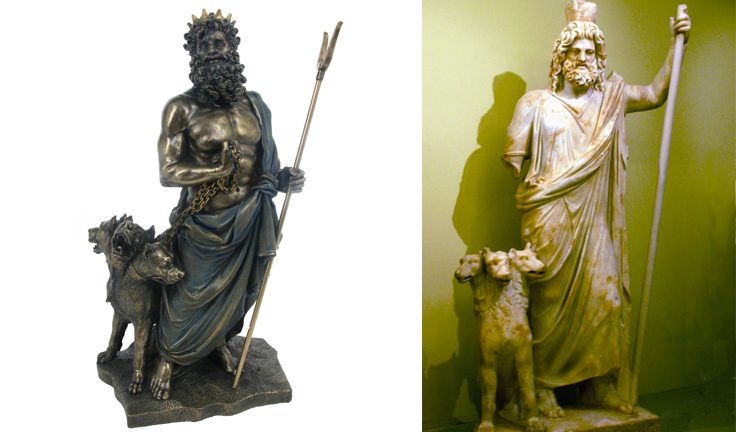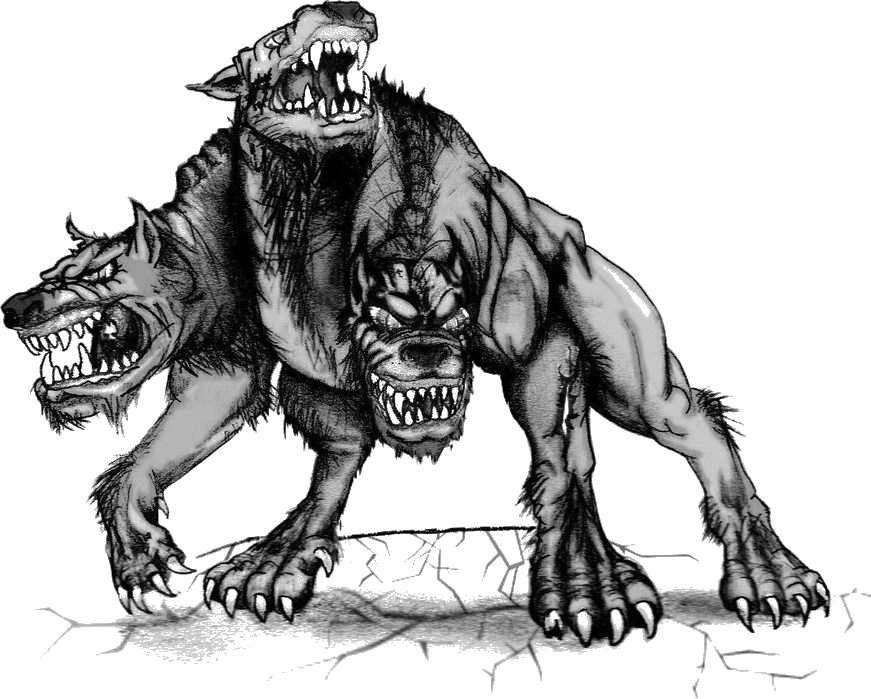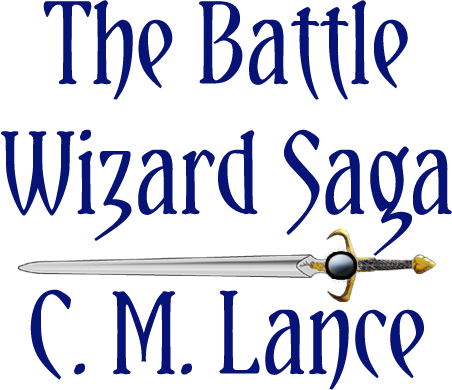 |
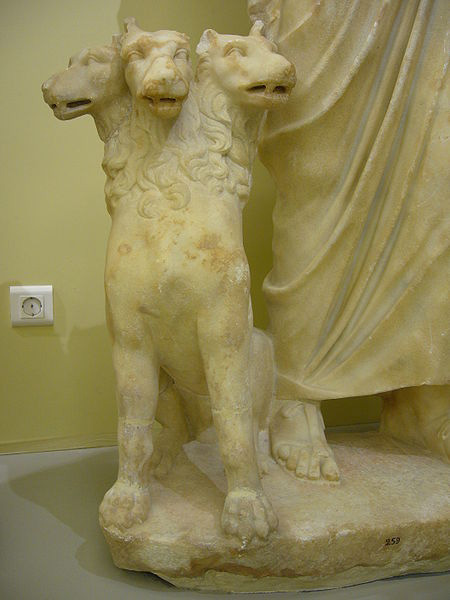
Roman statue of Cerberus and Hades in the Heraklion Archeology Museum in Greece |
|
CerberusIt is generally thought that Cerberus was born to
Echidne, a half-woman, half-serpent, and Typhon, the most fierce of all
creatures. Cerberus has a brother, Orphus, which is also a monstrous dog with two heads. Cerberus' Egyptian correspondent is Anubis, the dog who guarded the tombs and conducted the souls to the underworld. A similar dog, Garm, is guarding the house of deaths in the Norse mythology. These monsters were probably inspired from the dogs that haunted the battlefields in the dark of the night, feasting on the bodies of the fallen warriors. 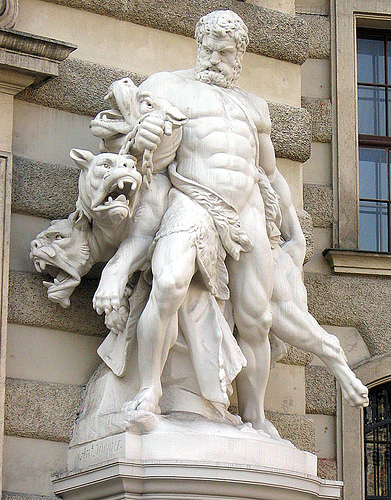 Symbol The three heads relate to the three-fold symbol of the baser forces of life. They represent the past, the present and the time yet to come. Dante described Cerberus as "il gran vermo inferno" thus linking the monsters with the legendary worms and orms. Role Cerberus is the watchdog of Hell. He is often pictured with Hades, his master. He can be found on the banks of the river Styx, where he had the task of eating any mortals who attempted to enter, and any spirits who attempted to escape. Others in Mythology Cerberus belongs to a In southern Mexican and Central American folklore, the Cadejo is a big black dog that haunts travellers who walk late at night on rural roads. The term is also common in American blues music, such as in Robert Johnson's "Hellhound on my Trail" Other Cerberus Images from history and the web. The second is the full statue of Cerberus with Hades in the Heraklion (Cerberus alone shown at the top of the page.) The bident has been broken off.
|
|
| Web Design by Mike Lance | |
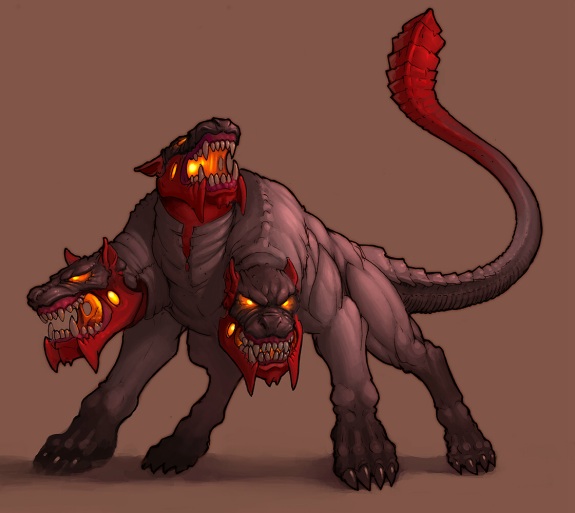
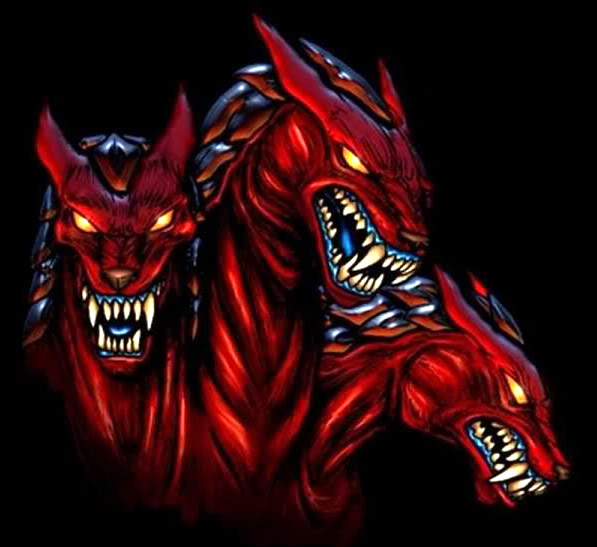 group of
mythical creatures called Hellhounds. While he is the most famous, there are numerous others. Hellhounds are also famous for
appearing in Northern European mythology and folklore as a part of the
Wild Hunt. These hounds are given several different names in local
folklore, but they display typical hellhound characteristics. The myth
is common across Great Britain, and many names are given to the
apparitions: Moddey Dhoo of the Isle of Man, Gwyllgi of Wales, and so
on (see Black dog (ghost)). The earliest mention of these myths are in
both Walter Map's De Nugis Curianium (1190) and the Welsh myth cycle of
the Four Branches of the Mabinogi (ca. tenth to thirteenth century).
group of
mythical creatures called Hellhounds. While he is the most famous, there are numerous others. Hellhounds are also famous for
appearing in Northern European mythology and folklore as a part of the
Wild Hunt. These hounds are given several different names in local
folklore, but they display typical hellhound characteristics. The myth
is common across Great Britain, and many names are given to the
apparitions: Moddey Dhoo of the Isle of Man, Gwyllgi of Wales, and so
on (see Black dog (ghost)). The earliest mention of these myths are in
both Walter Map's De Nugis Curianium (1190) and the Welsh myth cycle of
the Four Branches of the Mabinogi (ca. tenth to thirteenth century).